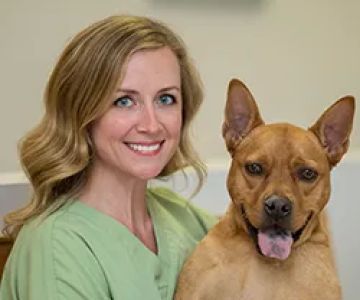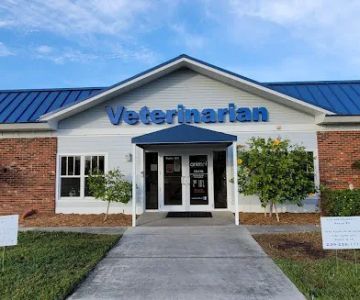How Many Years is Veterinary Medicine in the Philippines?
Veterinary medicine is a highly specialized field that requires years of education and hands-on training. For those looking to become veterinarians in the Philippines, it's important to understand the duration of the educational journey, the requirements, and what to expect along the way. In this article, we will explore the various steps and timeframes involved in becoming a veterinarian in the Philippines, while also shedding light on the opportunities available within this rewarding profession.
1. The Path to Becoming a Veterinarian in the Philippines
The path to becoming a veterinarian in the Philippines typically begins with obtaining a bachelor's degree in a relevant field, such as animal science or biology. After completing a pre-veterinary course, aspiring veterinarians must apply to a veterinary school recognized by the Commission on Higher Education (CHED). However, before delving into veterinary-specific education, a solid understanding of science subjects such as biology, chemistry, and physics is crucial.
The program in veterinary medicine in the Philippines generally lasts for a total of 5 years, making it a significant commitment. This timeframe is designed to equip students with both the theoretical knowledge and practical skills needed to succeed in the field. Students must complete this comprehensive curriculum before being eligible for licensure.
2. The 5-Year Veterinary Medicine Program
The veterinary medicine program in the Philippines is typically a 5-year course that combines classroom learning with hands-on practical experience. The first few years focus on core sciences and foundational veterinary topics, such as anatomy, physiology, and microbiology. During this period, students also begin to develop critical thinking skills that will aid them in diagnosing and treating animal health issues.
In the latter half of the program, students shift their focus to more specialized subjects such as surgery, pharmacology, and pathology. During this time, students are also required to complete clinical rotations, where they gain valuable experience by working directly with animals under the supervision of licensed veterinarians. These rotations are essential for developing practical skills in diagnosing diseases, performing medical procedures, and interacting with clients.
3. Additional Training and Internship Requirements
In addition to completing the core 5-year program, many veterinary schools in the Philippines require students to complete an internship before they can graduate. The internship usually takes place in veterinary hospitals, animal clinics, or research facilities, where students gain further hands-on experience in treating animals. This internship period is vital for honing the skills necessary to work independently as a practicing veterinarian.
After finishing the required coursework and internship, graduates must also pass the licensure examination administered by the Professional Regulation Commission (PRC) in order to practice as a licensed veterinarian in the Philippines. The licensure exam assesses the knowledge and competency of candidates in various areas of veterinary science, including animal health, surgery, and pharmacology.
4. Becoming a Specialist Veterinarian: Further Education Options
For those who wish to specialize in a particular area of veterinary medicine, further education and training are required. In the Philippines, many veterinarians choose to pursue postgraduate degrees or specialized certifications in fields such as surgery, internal medicine, or animal behavior. These specialized programs typically take an additional 2 to 3 years to complete, depending on the area of interest.
Specialization is an attractive option for veterinarians looking to deepen their expertise and increase their career opportunities. Specialized veterinarians are often in high demand, particularly in urban areas where there is a large population of pet owners seeking specialized care for their animals.
5. The Role of Veterinary Medicine in the Philippines
Veterinarians in the Philippines play an important role not only in pet care but also in livestock management, public health, and wildlife conservation. The country has a growing demand for veterinary services, especially as more people adopt pets and as the agricultural sector continues to thrive. Moreover, veterinarians in the Philippines are vital in controlling and preventing animal diseases, which can have direct impacts on human health and food security.
In addition to private practice, veterinarians in the Philippines can also work for government agencies, NGOs, research institutions, and even in academia. The diverse range of career opportunities makes veterinary medicine a flexible and rewarding field to enter, offering a variety of ways to make a significant impact on society.
6. Career Prospects for Veterinarians in the Philippines
The veterinary profession in the Philippines continues to evolve, with increasing opportunities in urban and rural areas alike. The rising number of pet owners, along with the expanding agricultural sector, ensures that demand for qualified veterinarians remains strong. As the industry grows, so do the opportunities for veterinarians to take on leadership roles, whether in private practice, government service, or specialized fields.
Veterinarians can also explore opportunities for further advancement by joining professional organizations, engaging in continuing education, or branching out into research and development. As animal health and welfare issues gain more attention in the country, the need for skilled and knowledgeable veterinarians will only continue to grow.
Overall, becoming a veterinarian in the Philippines requires a significant commitment of time and effort, with the standard educational path taking 5 years to complete. With the right training and experience, however, veterinarians can look forward to a fulfilling and impactful career in animal health.
SEO Title: How Many Years Does It Take to Become a Veterinarian in the Philippines? SEO Keywords: veterinary school in the Philippines, veterinary medicine education, veterinary licensure, veterinarian degree, animal health SEO Description: Learn about the path to becoming a veterinarian in the Philippines. Explore the 5-year veterinary medicine program, licensure requirements, and career prospects.










